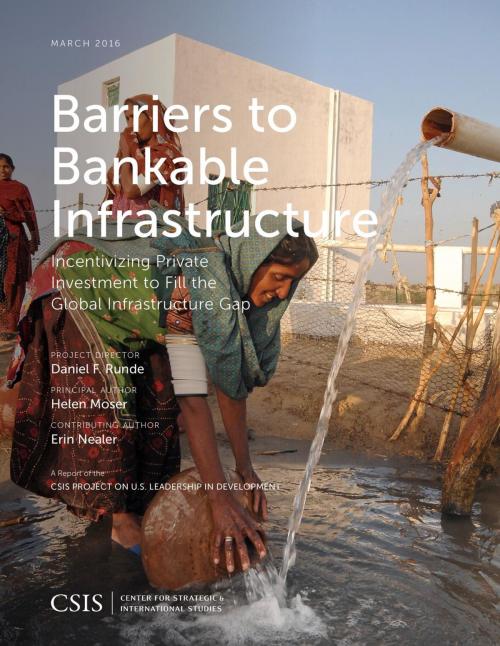Barriers to Bankable Infrastructure
Incentivizing Private Investment to Fill the Global Infrastructure Gap
Business & Finance, Economics, Economic Development, Nonfiction, Social & Cultural Studies, Political Science, International, International Security, Politics, Economic Policy| Author: | Helen Moser | ISBN: | 9781442259232 |
| Publisher: | Center for Strategic & International Studies | Publication: | March 18, 2016 |
| Imprint: | Center for Strategic & International Studies | Language: | English |
| Author: | Helen Moser |
| ISBN: | 9781442259232 |
| Publisher: | Center for Strategic & International Studies |
| Publication: | March 18, 2016 |
| Imprint: | Center for Strategic & International Studies |
| Language: | English |
This report discusses the estimated $1 trillion annual global infrastructure gap and provides recommendations on how U.S. agencies and multilateral development banks can better incentivize private-sector investment in global infrastructure. While many private companies are looking to support infrastructure projects with readily available capital, they have not found a viable project pipeline. The study first provides background on the global infrastructure gap and explores the current state of play of the various public, private, and multilateral actors who work on infrastructure projects in the United States and globally. It then discusses three important areas of needed reform: project preparation, product innovation, and foreign government capacity building. It concludes with targeted recommendations for the multilateral development banks and U.S. agencies that work on infrastructure, with a focus on creating an expanded pipeline of projects that are bankable for the private sector. The study also presents two case studies of World Bank-funded infrastructure projects in Mali and Cape Verde to illuminate the challenges related to financing and implementing infrastructure that are discussed in the broader report.
This report discusses the estimated $1 trillion annual global infrastructure gap and provides recommendations on how U.S. agencies and multilateral development banks can better incentivize private-sector investment in global infrastructure. While many private companies are looking to support infrastructure projects with readily available capital, they have not found a viable project pipeline. The study first provides background on the global infrastructure gap and explores the current state of play of the various public, private, and multilateral actors who work on infrastructure projects in the United States and globally. It then discusses three important areas of needed reform: project preparation, product innovation, and foreign government capacity building. It concludes with targeted recommendations for the multilateral development banks and U.S. agencies that work on infrastructure, with a focus on creating an expanded pipeline of projects that are bankable for the private sector. The study also presents two case studies of World Bank-funded infrastructure projects in Mali and Cape Verde to illuminate the challenges related to financing and implementing infrastructure that are discussed in the broader report.















